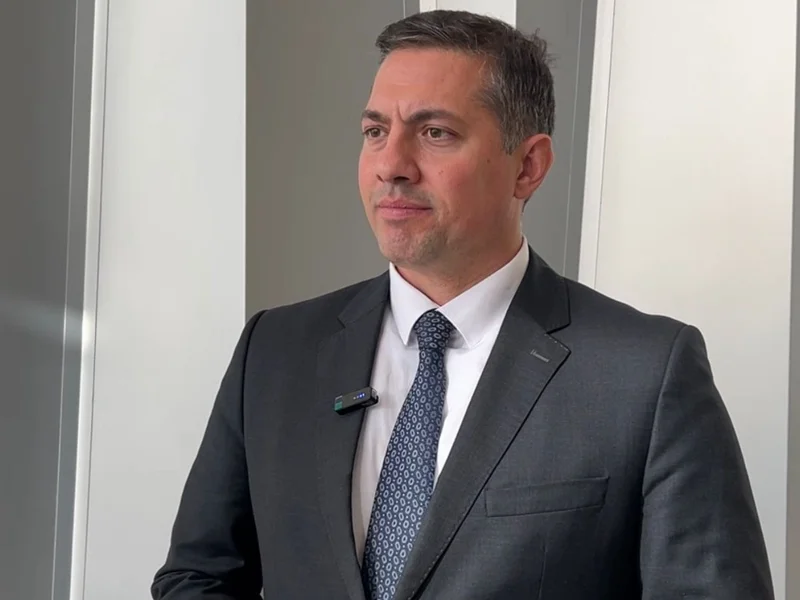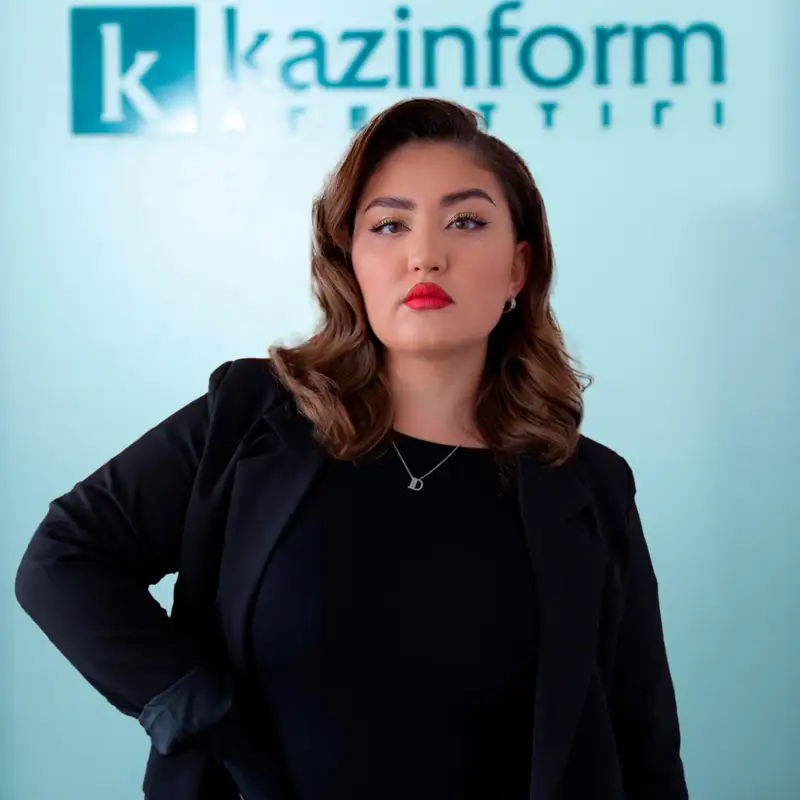“Kazakhstan can be a hub for AI” – ISSAI Head highlights opportunities in education and digital growth
On the sidelines of Digital Bridge 2025 in Astana, Kazinform News Agency conducted an exclusive interview with Dr. Huseyin Atakan Varol, General Director of the Institute of Smart Systems and Artificial Intelligence (ISSAI). The discussion touched on the role of AI in education, Kazakhstan’s potential as an investment destination, and the country’s place in global digitalization.

What do you think, and how do you assess the possibilities of the implementation of AI into educational systems, not just schools, but universities as well?
– Artificial intelligence holds huge potential for education, but I do not believe it will replace teachers. Teachers will always be there for the human touch and the direct connection with students. However, AI can be used with tools like language models, image generators, and text generators to augment the work of the teacher.
Our teachers spend a significant portion of their time grading exams and homework. What if we created a system that could grade these assignments and provide instant feedback to students? This would give teachers more time to focus on educating children and, in turn, improve learning outcomes.
This concept extends from K-12 to university education. At the university level, we should also utilize generative AI like language audio vision models to improve educational processes. We can also leverage the advanced simulation capabilities of AI models in education.
To do all of this for the benefit of the people of Kazakhstan, we must localize these models. They need to understand the Kazakh language, Kazakh culture, and the educational system of Kazakhstan. We will finish our generative AI model, Oylan 3, within this year. Next year, one of our main focuses will be to create a fine-tuned version for educational processes.
If we don't do this for Kazakhstan, we will have to wait for international companies to do it for us. That delay is not acceptable, because the President has clearly pointed out his intention for Kazakhstan to be a digital AI nation within three years.
At what age do you think we should start implementing and introducing students to AI and how to properly use AI?
– How to use artificial intelligence in education is a major research question today. If we let students use AI without any limitations, they will start using it for every task, which will impede their learning process. They may develop metacognitive laziness, and that is not what we want.
We want to use AI as a helper. When students are solving a problem, it should provide help only when needed, so that the learning process can be accelerated. This can apply at any phase of the educational process and in any field. For instance, we can use it to teach the Kazakh language or to provide math tutoring for students in rural regions.
We also need to teach our students when not to use AI. We should teach them the responsible and ethical use of AI and help them understand that they should not use it for everything. They should use it as a tool, only when it is needed.
Beyond students, we must look to the whole population. As Mr. President has pointed out in his address, many jobs will be lost due to artificial intelligence, and therefore workforce reskilling is emerging as a very important topic.
People who are 30, 40, or 50 years old should go through educational programs to augment their skills with artificial intelligence and stay competitive in the job market. The AI-Sana program within the Alem International AI Center will facilitate this.
What, in your opinion, should be one of the key priorities that regulators and lawmakers have to look into when it comes to AI?
– I welcome the establishment of the Ministry of Artificial Intelligence in Kazakhstan. This is a very progressive step. We know that artificial general intelligence will significantly impact our economy, society, and international relations, which is why this is such a welcome development.
Now, there will be a single focal point on artificial intelligence in Kazakhstan, which will allow for the vertical and horizontal integration of AI into society. The regulatory framework is extremely important. AI is as transformative as electricity but can be as dangerous as nuclear weapons. We are already seeing artificial intelligence being used for weapons.
We must ensure that AI is used for the benefit of society and for the good of the people, and we must protect the citizens from the harmful use of artificial intelligence.
Therefore, Kazakhstan adopted a law on AI. We must now develop this law further with additional regulations. This framework should ensure that AI innovation proceeds as fast as possible while the dangers to society are minimized.
Digital Bridge focuses a lot on AI investment and investment in startups. So, what do you think about the possibilities of not just Kazakhstan but Central Asia's AI startups and investments? How do you assess the AI investment climate in Central Asia?
– I have been in Kazakhstan for 15 years, and today, many of my former students are millionaires. I can tell you that in Kazakhstan, there is a strong appetite for venture and quite a bit of capital, but until very recently, there was a lack of venture capital. Now, at events like Digital Bridge, in the news, and in other venues, we are seeing that Kazakhstan is starting to develop venture capital for artificial intelligence and other tech sectors.
I deeply welcome this. We recently heard that Higgsfield AI became the first Kazakhstan-grown unicorn. I believe that with strong leadership, supportive political frameworks, well-educated youth, and enabling investments like establishing supercomputers in Kazakhstan, there will be many more unicorns to come within the next five to ten years.
We are living in an accelerated age. Today, the journey from a company's founding to becoming a unicorn can take only four years. So if we become one of the first movers in this market and empower the youth of Kazakhstan, a country with very strong demographics, I am confident that Kazakhstan will succeed in this AI race in terms of its economic outcomes.
Could you say that Kazakhstan is becoming somewhat of a hub in Central Asia when it comes to AI and digitalization?
– Yes, I can definitely say that Kazakhstan is becoming a hub. Today's event is called "Digital Bridge," and I have always seen Kazakhstan as a bridge between East and West, and North and South. From my perspective, Kazakhstan is like a modern caravanserai on the Great Silk Road where we can bring everyone together.
Kazakhstan is a very friendly nation. It engages in a multi-vector foreign policy and consistently adheres to international law. It also provides a very positive environment for investors.
Furthermore, just look at Astana. Today, Astana is one of the most pleasant, clean, and safest cities you can visit. Considering all of these things, yes, Kazakhstan can be a hub for AI, and I believe in the bright future of this country.
The statement was echoed during yesterday’s panel sessions, during one of which leading experts in artificial intelligence from across Central Asia discussed the region’s potential in AI and the steps needed to build a unified ecosystem for startups.
